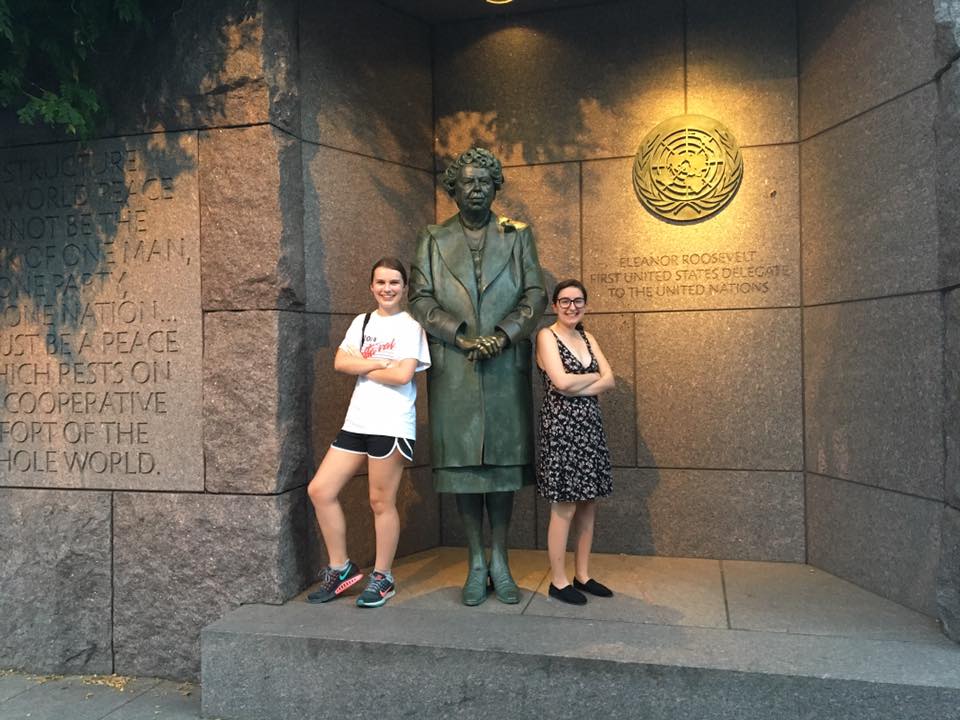On an administrative level, I am pleased to say I have made significant progress on my learning goals for this internship. The national preservation organization directory is complete with the contact information of more than 1,000 organizations and interested stakeholders, with occasional updates of preferred method of contact. The directory is already being used in our office to expand the Government Relations team’s reach.
I have briefed two reports on state historic tax credit policy, one on the state historic tax credit in Louisiana, and the other on a proposed program in Tennessee. I may write more in the future, but for now they are undergoing revision by my supervisor so they can be posted to the Trust’s website.
In my work on the new advocacy toolkit, so far I made one-pagers on the basics of state historic tax credit programs, caps to HTC programs, the return on investment (ROI), and the transferability of state tax credits. These are undergoing various stages of revision, and should be ready for public use within the next few weeks. My regional charts of state historic tax credit programs are nearly complete, and undergoing the final stage of revision. An advocate from Mississippi set to testify on the importance of state historic tax credit programs to the Southern Legislative Conference approached my boss for any advocacy information she had on hand, and I developed custom materials for her use based on my other work—that is also undergoing final stages of revision. I am especially proud of this project because it shows how versatile and useful the material I have developed is, and is, once again, genuinely being used. I am excited that on July 20, I will preview the new advocacy toolkit I designed in the webinar Effective State Historic Tax Credits and Advocacy Campaigns, where I will speak along with my supervisor and several other advocates from across the country.
Pictures from my tour of the newly restored Brumidi corridor in the Capitol, organized by one of my coworkers.
In terms of networking, I have been able to meet people from all over the Trust through brown bag lunches, intern activities, department bonding, and even just in the elevators. I have also been lucky enough to meet people from outside of the Trust, from individuals working in Senate offices during a tour of the recently restored Brumidi corridor in the Capitol, to individuals working at our for-profit subsidiary, the NTCIC. At the latter, their team invests in historic tax credit projects and operates as a specialized firm, and our Government Relations team works closely with them to ensure we can keep the pulse on how to best advocate for a credit by the people who use it. Outside of the Trust—and I may consider this a step above networking—I have been able to spend time with one of the friends I made at the PLEN Women in Public Policy conference, as she lives and works in the city.

Becca and I with Eleanor Roosevelt at the FDR Memorial by the National Mall.
By virtue of my working at the Trust, I gain experience working in a non-profit. It is especially interesting working in a rather large one—with two floors of staff in the Watergate building. While I am the only intern in my department, I am one of around thirty at the Trust, who are scattered around the Trust working in specific fields. Rather than being an intern picking up various tasks specific staff do not have the time to handle, I have been able to be focused in my position, working on historic tax credit policy and advocacy for my whole experience.
To monitor my growth, I have regular check-ins with my supervisor, depending on our workloads, from about twice a week to daily. In these calls (as she works mostly off-site) we figure out if there are any new tasks I should take on (i.e. developing the custom materials) and make sure I am on track to complete my main project of the advocacy materials by the end of July.
My time spent speaking with my supervisor is also on another level—through it I gain the ear and mentorship of a woman in the preservation field, and one who works with tax policy where you would not expect to find very many women. It is also promising to see that women operate at the Trust at the highest levels, like Stephanie Meeks, our CEO, and Merrill Hoopengardner, the president of NTCIC. Going to meetings on the Hill it strikes me how few women are the faces of our government and how most work behind the scenes, whispering in Congressmen’s ears during committee meetings or working the phones in their offices. The experience of working at the Trust is even more valuable because I get to see women working and leading at all levels.
At the Trust I’ve discovered how much I love working at a non-profit in general. Speaking with people across the Trust, it is clear they genuinely love their jobs and the work they do more than the average person in the workforce. I am lucky to be surrounded by individuals from all different career backgrounds, whether working in Congress offices or local historic organizations, who found a home they love here. It is also clear I am enamored with the preservation field, and viewing it from a policy standpoint connects preservation concretely with my degree, reminding me I do not need to be an architect to work in preservation. While tax policy sounds dry on its face, the tangible human impact of the historic tax credit combined with my interest in state and local policy has made me more interested in tax policy at large. I’ve also fallen a bit in love with Washington DC as a place to live and work—not just as a place to visit with family as a tourist. The past few years I have been lucky enough to live and spend time both in my Maryland hometown and New Orleans, and am doubly lucky to have my connection to New Orleans fund my ability to experience a new city. Knowing that I am comfortable living and working in several cities across the country puts me more at ease for graduation, knowing that if for some reason I cannot find a job or gain acceptance to graduate school in one metro area, I have two more that I love just as much.


